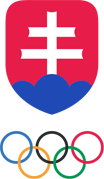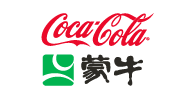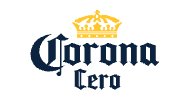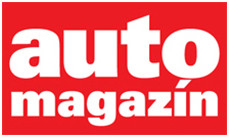Basic Information
The Slovak Olympic Committee (SOC) was founded on 19th December 1992 in Bratislava. It was finally recognized as the National Olympic Committee of the Slovak Republic at the 101st session of the International Olympic Committee (IOC) on 24th September 1992 in Monte Carlo.
The "birth" of the SOC took place in the House of Sports at Olympijské námestie 1 in Bratislava, where the organisation was based until 2002. At the founding session 49 members were elected to the SOC, including its chairman, a 71-year-old member of the IOC and the former supreme representative of the Slovak sports movement (in the period 1969 – 1983), professor Vladimír Černušák. The Slovak Ministry of the Interior registered the SOC and its first Statute on 20th January 1993. Subsequently, the SOC plenary approved the emblem, badge and flag of the Slovak Olympic Committee. From February 1993 the first Secretary-General of the SOC was the internationally renowned ski functionary Ján Mráz.
The SOC was one of the two successors of the Czechoslovak Olympic Committee (ČSOV). During World War II and shortly after, the first Slovak Olympic Committee was active in the Slovakia (it came into existence in 1939 and was dissolved in 1947). However, the present SOC is one of the two successors of the ČSOV which was active from 1919 – 1992 with a break for WWII and definitely halted its activities on 27th March 1993. Its assets were consequently divided between the Czech Olympic Committee (COC) and SOC in a ratio of 2:1. The ČSOV ceased operation as a result of the split of the Czech and Slovak Federative Republic with effect from 31st December 1992. In its early days the SOC could build on the pioneering work of its predecessor, the Olympic Society of Slovakia (OSS), which had operated from 6th April 1990 under the leadership of Mária Mračnová. Thanks to these foundations the SOC was able to rapidly develop its diverse activities.
Participation in 13 Olympics and 36 medals since Lillehammer
During its session in Atlanta on 16th March 1993, the IOC Executive Board provisionally approved the membership of the Slovak Olympic Committee, to enable it to submit an application for the 1994 Winter Olympics in Lillehammer. The SOC was fully approved six months later at a IOC session in Monte Carlo. More than a year after its foundation, the SOC sent the first Slovak Olympic delegation to the 1994 Winter Olympics in Lillehammer.
Since then, Slovak Olympians have participated in a total of 7 Olympic Winter Games and 6 Olympic Games and have received a total of 36 Olympic medals (12 gold, 16 silver and 8 bronze medals). The total Slovak medal count at Olympic Games is 9-12-7 and at Winter Olympics 3-4-1.
The major Olympic legends of independent Slovakia include the biathlete Anastasiya Kuzmina (3 gold and 3 silver medals), the white-water slalom paddlers, twins Peter and Pavol Hochschorners (3-0-1), Michal Martikán (2-2-1) and Elena Kaliská (2-0-0), but also many others whose names will be listed in a separate part of this bulletin.
The highest number of Slovak Olympic athletes to participate in a single Olympic Games (112 athletes) was in Sydney 2000, with three teams competing in the team sports categories. The largest delegation at a Winter Olympics (with 73 athletes) was sent by the SOC to Vancouver 2010, where, in addition to the traditional participation of a male ice hockey team, a female ice hockey team competed for a historical first time.
Building on a long-established tradition
Medallists from the period of Slovak independence have continued the long-established tradition of top-level Slovak athletes. The Slovak athlete Alojz Szokol even competed under the flag of Historical Hungarian in the Games of the 1st Olympiad of the new age in Athens in 1896, finishing third in the 100 m.
Over the last 25 years Slovak athletes have followed in the footsteps of their successful famous predecessors of the Czechoslovak era, including Olympic Champions – Július Torma (London 1948 – boxing), Ján Zachara (Helsinki 1952 – boxing, the eldest living Slovak Olympic champion who celebrated his 90th birthday in August), Pavel Schmidt (Rome 1960 – rowing), Ondrej Nepela (Sapporo 1972 – figure skating, who in memoriam has been elected The Best Slovak Athlete of the 20th century) Anton Tkáč (Montreal 1976 – cycling), Stanislav Seman, František Kunzo (both Moscow 1980 – soccer), Jozef Pribilinec (Soul 1988 – athletics) and Miloslav Mečíř (Soul 1988 – tennis). These athletes remind us that soon (28th October) we will celebrate the 100th anniversary of the establishment of the Czechoslovak Republic.
The diverse activities of the SOC
Shortly after its establishment, the SOC gained a great international reputation for its remarkable activities in the development of Olympism – especially thanks to the activities of the regional Olympic clubs (currently 21 of them), the Slovak Olympic Academy, the SOC Fair Play Club (as the first national fair play club in Europe it was awarded the Honorary Certificate of Merit by the EFPM) and the Slovak Society of Olympic and Sport Philately (which was one of the founding members of the International Olympic Philately Federation). Later, the Environmental Commission of the SOC and the Slovak Society of Olympic and Sports Collectors (the founding member of the International Association of Olympic Collectors) also earned a good reputation abroad.
The SOC developed a long-term Olympic educational programme, and issued several publications and posters as well as drafting several projects aimed at increasing awareness of Olympism – especially the Olympic Festivals of Slovakia and the Olympic Badge of Versatility. The SOC organized an extensive Relay with the Olympic fire through the whole of Slovakia before the 2004 OG in Athens, 2012 OG in London and 2016 OG in Rio, with numerous activities that were attended by thousands of participants. The Olympic Day celebrations in Slovakia are attended by tens of thousands of people every year.
In 2007 the SOC founded a Slovak Olympic Committee Foundation which especially aims to help young sports talents and senior Olympians. Since the early 2015 the SOC has been a guarantor of the Slovak Olympic and Sports Museum housing a huge number of sports and Olympic memorabilia and items of historical value, which later became a member of the Olympic Museum Network. The SOC is also responsible for the National Olympic Memorial in the National Cemetery in Martin, which was unveiled on 16th October 2014.
International Activities
The SOC supported two candidatures of the Poprad-Tatra region to host the Winter Olympic Games (bids for the OWG held in 2002, resp. in 2006), which helped Slovakia gain visibility in the international Olympic sphere. Both candidatures relied on a vast Slovak tradition in the organization of winter sports.
To support the second Olympic bid the SOC organized the 4th Winter European Youth Olympic Days (EYOD) in Poprad-Tatra in 1999, which remain the most extensive Olympic event held in Slovakia. However, the 16th Summer European Youth Olympic Festival (EYOF) which will be held in Košice in 2021, will exceed it.
In addition to the Winter EYOD 1999, the SOC organized several major international events – a Seminar of the Chefs de Missions for the 2000 OG and Secretaries-General of the European NOCs in Bratislava in 1998, the General Assembly of the European Fair Play Movement (EFPM) and the 4th European Fair Play Conference in 2001, the 10th anniversary celebrations of the SOC, attended by IOC President Jacques Rogge in 2003, the great celebration of the 15th anniversary of the SOC (attended by the, at that time, IOC Vice-President and the current IOC President Thomas Bach) in 2007, an European Olympic Committees (EOC) Executive Board session in 2016, and a total of three marketing seminars of IOC and the Association of National Olympic Committees in the Olympic Training Centre X-Bionic Sphere in 2017 and 2018.
The most important officials
The international contribution of Slovaks in the Olympic movement has also been remarkable. Vladimír Černušák, who was a member of the IOC representing Czechoslovakia since 1981, consequently became an IOC member for Slovakia in 1993 – 2001 and an IOC Honourable member until his death in 2017. Since 2013 Danka Barteková is the IOC member for the Athletes' Commission. She is an active member of several IOC commissions, leads the Coordination Commission for the Youth Winter Olympics 2020 in Lausanne and has been the vice-chairman of the Athletes' Commission since the 2018 Winter Olympics in Pyeongchang.
Three Slovaks were elected to the Executive Boards of the EOC - the former SOC Secretary-General Martin Benko (2001 – 2005), the former SOC President František Chmelár (2013 – 2017) and since 2017 a current EOC Executive Board the SOC Secretary-General Jozef Liba for the past few years.
So far, five Slovaks have been awarded by the Olympic Order in Silver (Ľudovít Komadel, Ján Mráz, Ján Zachara, Peter Šťastný, Vladimír Černušák), two have received the IOC President's Trophy (Mária Mračnová, František Chmelár), six have received the IOC Pierre de Coubertin medal (Hilda Múdra, Bohumil Golian, Peter Chudý, Ján Smerek, Igor Petro, Štefan Kubík), two received the EOC Laurel Trophy (Vladimír Miller, Zdenko Kríž) awarded by the European Olympic Committees, and one has received the Jean Borotra award from the International Fair Play Committee of UNESCO (Mária Mračnová).
Three SOC presidents in 25 years
The Slovak Olympic Committee has operated under the leadership of the Chairmen/ Presidents: Vladimír Černušák (19th December 1992 – 19th August 1999), František Chmelár (20th November 1999 – 26th November 2016) and Anton Siekel (since 26th November 2016). To date the position of the SOC Secretary-General has been held by: Ján Mráz (1st February 1993 – 31st December 1996), Martin Benko (1st January 1997 – 31st December 2004) and Jozef Liba (since 1st February 2005).
A new position of Executive Director was established on 1st February 2017 and since then has been held by Gábor Asványi.



























